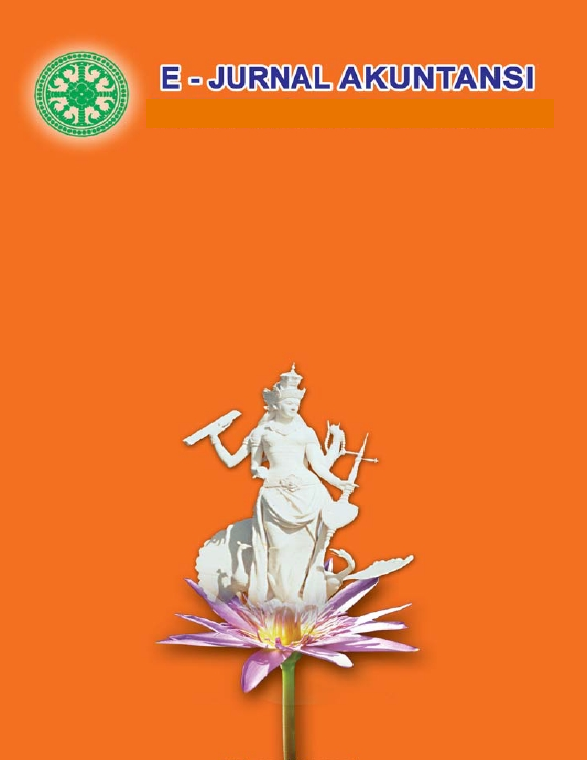Kebijakan Pajak Indonesia Menanggapi Krisis COVID-19: Manfaat bagi Wajib Pajak
Abstract
The economy has changed dramatically since the COVID-19 outbreak began. The impact that occurred in Indonesia was almost on all fronts, and the Government continued to issue policies due to this impact. Tax policies that are designed to provide incentives for affected taxpayers are expected to increase economic growth. This research was conducted to map 14 Tax Policies in three Regulations issued by the Government based on the objective of reducing the economic impact of the COVID-19 pandemic. The study used a qualitative method with a descriptive approach obtained. Then perform data analysis using three stages of analysis techniques in the form of data collection, data reduction, and concluding. The results of the study state that Indonesia has issued a policy to help taxpayers who are affected by COVID-19. Benefits for taxpayers, namely a reduction in rates to an exemption from income tax, the goal is that the economy which has stopped moving up becomes stable.
Keywords: Tax Incentives; Tax Policy; Taxpayers.
Downloads
References
Arvita, R., & Sawarjuwono, T. (2020). Etika Profesional Konsultan Pajak Dalam Melaksanakan Perannya Sebagai Mitra Wajib Pajak Dan Pemerintah. E-Jurnal Akuntansi, 30(1), 88–100. https://doi.org/https://doi.org/10.24843/EJA.2020.v30.i01.p07
CNN Indonesia. (2020, February 4). Mengenal 7 Virus Corona yang Jangkiti Manusia. CNN Indonesia. Retrieved from https://www.cnnindonesia.com/teknologi/20200203155532-199-471187/mengenal-7-virus-corona-yang-jangkiti-manusia
Direktorat Jenderal Pajak. Peraturan Direktur Jenderal Pajak Nomor PER - 08 /PJ /2020, Pub. L. No. PER-08 /PJ /2020 (2020). Indonesia.
Economic Organisation for Co-operation and Development. (2020). covid-19 tax policy and other measures. Oecd.Org. Retrieved from https://www.oecd.org/coronavirus/en/
Faisal, M., & Nirmala, M. P. (2020). COVID-19 and Economic Policy Options: What Should the Government do? Jurnal Inovasi Ekonomi, 5(3), 45–52. https://doi.org/10.22219/jiko.v5i3.11834
Hadiwardoyo, W. (2020). Kerugian Ekonomi Nasional Akibat Pandemi Covid-19. Baskara: Journal of Business and Entrepreneurship, 2(2), 83–92. https://doi.org/10.24853/baskara.2.2.83-92
Hamzah, A. (2019). Metode Penelitian Kualitatif. Batu: Literasi Nusantara.
Harahap, M., Sinaga, B. M., Manurung, A. H., & Maulana, T. N. A. (2018). Dampak Kebijakan Dan Makroekonomi Terhadap Efektivitas Penerimaan Pajak Di Bursa Efek Indonesia. Jurnal Ilmiah Manajemen, 8(2). https://doi.org/dx.doi.org/10.22441/mix.2018.v8i2.013
Ihsanuddin. (2020, March 2). Jokowi Umumkan Dua WNI Positif Corona di Indonesia. Kompas.Com. Retrieved from https://nasional.kompas.com/read/2020/03/02/11265921/breaking-news-jokowi-umumkan-dua-orang-di-indonesia-positif-corona?page=all
Kusuma, H. (2020, March 10). Sri Mulyani Naikkan Batasan Restitusi Hingga Rp 5 Miliar. Detik.Com. Retrieved from https://finance.detik.com/berita-ekonomi-bisnis/d-4932881/sri-mulyani-naikkan-batasan-restitusi-hingga-rp-5-miliar%0AMau
Menteri Keuangan Republik Indonesia. Peraturan Menteri Keuangan Republik Indonesia Nomor 23/PMK.03/2020, Pub. L. No. PMK 23/PMK.03/2020 (2020). Indonesia.
Menteri Keuangan Republik Indonesia. Peraturan Menteri Keuangan Republik Indonesia Nomor 28/PMK.03/2020, Pub. L. No. PMK 28/PMK.03/2020 (2020). Indonesia.
Menteri Keuangan Republik Indonesia. Peraturan Menteri Keuangan Republik Indonesia Nomor 44/PMK.03/2020, Pub. L. No. PMK 44/PMK.01/2020 (2020). Indonesia.
Moleong, L. J. (1999). Metodologi Penelitian Kualitatif. Bandung: Remaja Rosdakarya.
Muhyiddin, & Wardhana, D. (2020). Covid-19 Outbreak and Development Planning in Indonesia. The Indonesian Journal of Development Planning, 4(1). https://doi.org/https://doi.org/10.36574/jpp.v4i1.108
Munandar, M. H. (2020). Analysis The Effectiveness Of Tax Relaxation Due To Covid-19 Pandemy On Indonesian Economic Defense. Lex Scientia Law Review, 4(1), 133–142. https://doi.org/10.15294/lesrev.v4i1.38631
Mustajab, D., Bauw, A., Rasyid, A., Irawan, A., Akbar, M. A., & Hamid, M. A. (2020). Working from Home Phenomenon as an Effort to Prevent COVID-19 Attacks and Its Impacts on Work Productivity. The International Journal of Applied Business Tijab, 4(9), 13–21. https://doi.org/10.1017/CBO9781107415324.004
Pakpahan, A. K. (2020). Covid-19 Dan Implikasi Bagi Usaha Mikro, Kecil, Dan Menengah. JIHI: Jurnal Ilmu Hubungan Internasional, 20(April), 2–6. https://doi.org/https://doi.org/10.26593/jihi.v0i0.3870.59-64
Pemerintah Republik Indonesia. Peraturan Pemerintah Pengganti Undang-Undang Republik Indonesia Nomor 1 Tahun 2020 tentang Kebijakan Keuangan Negara dan Stabilitas Sistem Keuangan Untuk Penanganan Pandemi Covid-19 dan/atau Dalam Rangka Menghadapi Ancaman Yang Membahayakan Perekonomian N, Pub. L. No. Peraturan Pemerintah Nomor 1 Tahun 2020 (2020). Indonesia.
Ramdhani, A., & Ramdhani, M. A. (2017). Konsep Umum Pelaksanaan Kebijakan Publik. Jurnal Publik, 11(1), 1–12. https://doi.org/10.1109/ICMENS.2005.96
Sampurno, M. B. T., Kusumandyoko, T. C., & Islam, M. A. (2020). Budaya Media Sosial, Edukasi Masyarakat, dan Pandemi COVID-19. SALAM: Jurnal Sosial Dan Budaya Syar-I, 7(6), 529–542. https://doi.org/10.15408/sjsbs.v7i5.15210
WHO. (2020). Coronavirus disease COVID-2019. who (Vol. 147). https://doi.org/10.30895/2312-7821-2020-8-1-3-8
Widyaningtyas, N. S. (2020). Hubungan Antara Perilaku Wajib Pajak Dan Kebijakan Pajak Berdasarkan Sudut Pandang Behavioral Accounting. E-Jurnal Akuntansi, 30(1), 14–27.
Yuliana. (2020). Corona virus diseases (Covid -19): Sebuah tinjauan literatur. Wellness and Healthy Magazine, 2(1), 187–192. Retrieved from https://wellness.journalpress.id/wellness/article/view/21026

This work is licensed under a Creative Commons Attribution-ShareAlike 4.0 International License.

















